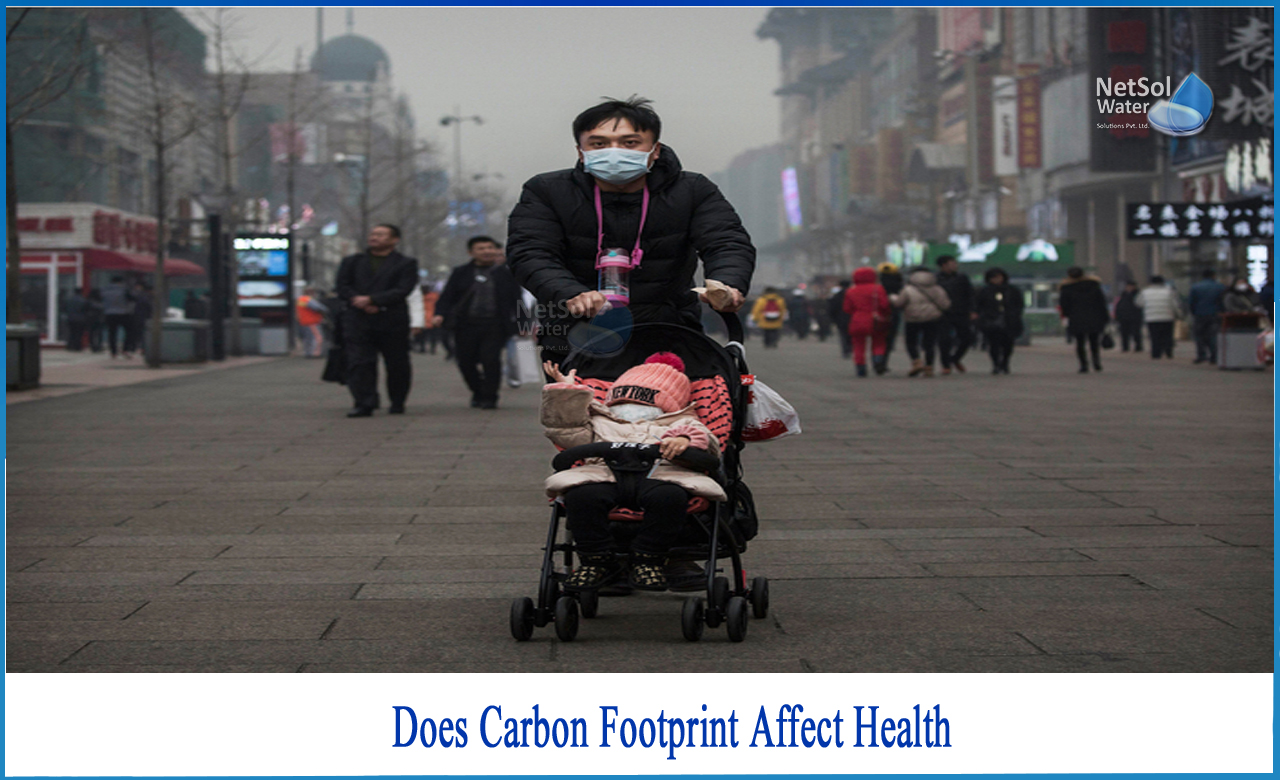Overview
Changes in greenhouse gas concentrations, especially the carbon footprint, change the global climate and have a various range of human health consequences.
Climate change's environmental consequences, such as extreme heat waves, rising sea levels, changes in precipitation resulting in flooding and droughts, intense hurricanes, and degraded air quality, have an impact on humans' physical, social, and psychological health, both directly and indirectly. Changes in precipitation, for example, cause changes in the availability and quantity of water, as well as extreme weather events such as hurricanes and flooding. Climate change has the energy to drive disease migration and exacerbate health effects that are caused by the release of toxic air pollutants in populations such as children, the elderly, and those suffering from asthma or cardiovascular disease.
Increasing level of CO2
Carbon dioxide concentrations in the Earth's atmosphere have not been as high as they are now since long before humans existed. Carbon dioxide levels do not always have a direct impact on our ability to breathe (at least, at these concentrations). However, by transforming the planet, CO2 levels will still significantly increase pollution and related diseases, potentially slow human cognition, cause extreme weather events (including deadly heat waves), and expand the ranges of disease-carrying creatures such as mosquitoes and ticks.
CO2 levels are still rising rapidly right now. They could reach 550 ppm by the end of the century, causing average global temperatures to rise by 6 degrees Celsius.
What is mitigation?
Climate change mitigation and adaptation strategies can prevent illness and death in the present while also protecting the environment and health of future generations.
Mitigation refers to measures taken to reduce greenhouse gas emissions and improve the sinks that trap or remove carbon from the atmosphere. Adaptation refers to actions taken to reduce the impact of changes on health and the environment that cannot be avoided through mitigation. Appropriate mitigation and adaptation strategies will have a positive impact on both climate change and the environment, and thus on human health.
It is critical that adaptation and mitigation decisions and policies be based on the most up-to-date science on climate change and its effects. The understanding of the relationship between climate change, the environment, and human health is incomplete.
Does carbon footprint affect health?
A Human Health Perspective on Climate Change is now available. Working on Climate Change and Health identified major research areas that need to be explored and comprehended further. These are some examples:
· Asthma, Respiratory Allergies, and Airway Diseases are all conditions that affect the lungs;
· Cancer;
· Stroke and Cardiovascular Disease;
· Heat's Effects;
· Nutrition and Foodborne Diseases;
· Effects on Human Development;
· Stress-Related Disorders and Mental Health;
· Neurological Disorders and Diseases;
· Zoonotic and vector borne diseases;
· Diseases spread through water;
· Weather-Related Mortality and Morbidity.
Pollution
Increased CO2 levels also exacerbate ozone and other pollution levels. According to a recent study, air pollution kills 9 million people each year. This will worsen as the temperature rises.
According to one study, for every degree Celsius that CO2 levels rise, ozone pollution can be expected to kill an additional 22,000 people through respiratory illness, asthma, and emphysema. Simultaneously, non-ozone air pollution associated with warmer weather will increase rates of lung cancer, allergies, and asthma.
Ticks and mosquitoes are wreaking havoc
Ticks, mosquitoes, and other disease vectors are expanding their habitats as the world warms, allowing them to spread disease for longer periods of time before being shut down by cold weather for the season.
We don't have good methods for controlling mosquito populations, and we're terrible at keeping ticks at bay. As a result, as CO2 raises the global thermostat, these conditions, known as vector-borne diseases, are expected to worsen.
Hurricanes and forest fires
Of course, the larger-scale planetary changes caused by accumulating atmospheric CO2 are expected to have an impact on human health as well. As CO2 levels rise, ice sheets melt and seas rise, making cities more vulnerable to storms. Higher temperatures are expected to cause more intense storms with more rainfall, which, as the previous year demonstrated, can have a significant impact on people.
Netsol Water is Greater Noida-based leading water & wastewater treatment plant manufacturer. We are industry's most demanding company based on client review and work quality. We are known as best commercial RO plant manufacturers, industrial RO plant manufacturer, sewage treatment plant manufacturer, Water Softener Plant Manufacturers and effluent treatment plant manufacturers. Apart from this 24x7 customer support is our USP. Call on +91-9650608473, or write us at enquiry@netsolwater.com for any support, inquiry or product-purchase related query.
All these affect humans and environment. We need to work for all these before it’s too late.



